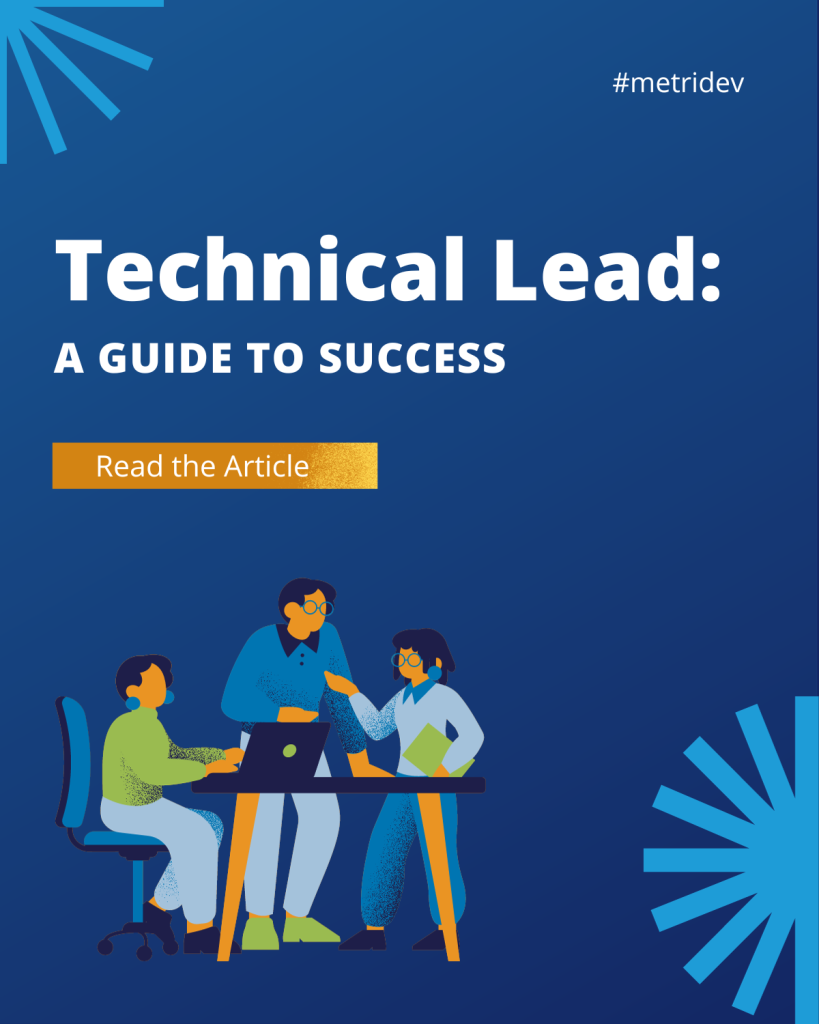Introduction
Delivery excellence is a vital component for businesses aiming to succeed in today’s competitive landscape. It encompasses a set of strategies and practices that ensure consistent and high-quality delivery of products or services to customers. By prioritizing it, organizations can enhance customer satisfaction, increase efficiency, and maintain a competitive edge. In this article, we will explore what delivery excellence entails, its importance in business, and the strategies that can help achieve it.
What is Delivery Excellence?
Delivery excellence refers to the consistent and successful delivery of products, services, or projects that meet or exceed customer expectations. It involves a holistic approach that encompasses various aspects, including efficient processes, effective communication, and continuous improvement.
What Does a Delivery Excellence Manager Do?
A delivery excellence manager plays a pivotal role in ensuring the successful execution of projects. They are responsible for overseeing project teams, coordinating resources, and implementing best practices to achieve delivery excellence. Their primary objective is to optimize project delivery processes, identify areas for improvement, and drive continuous enhancement. Additionally, they collaborate with stakeholders, manage risks, and facilitate effective communication throughout the project lifecycle.
The Importance of Delivery Excellence in Business
Achieving delivery excellence is essential for businesses for several reasons. Firstly, it enhances customer satisfaction and loyalty. When customers receive products or services on time and of high quality, they are more likely to become repeat customers and promote the business through positive word-of-mouth. Secondly, delivery excellence improves operational efficiency by streamlining processes and reducing waste. This leads to cost savings and increased productivity. Lastly, delivery excellence enables businesses to stay ahead of the competition by consistently meeting or exceeding customer expectations. It builds a reputation of reliability and trustworthiness, which can be a significant differentiator in the market.
Delivery Excellence Roles and Responsibilities
In order to achieve delivery excellence, it is important to define clear roles and responsibilities within the organization. The delivery excellence manager plays a key role in overseeing and optimizing the entire delivery process. They collaborate with various teams, such as product development, operations, and customer service, to ensure smooth coordination and timely delivery. The delivery excellence manager is responsible for establishing and monitoring key performance indicators (KPIs) to track progress and identify areas for improvement. They also play a crucial role in fostering a culture of continuous improvement and innovation within the organization.
Key Metrics for Measuring Delivery Excellence
Measuring delivery excellence requires the use of key metrics that provide insights into the performance of the delivery process. Some important metrics to consider include:
1. On-time delivery: This metric measures the percentage of products or services delivered within the agreed-upon timeframe. It reflects the organization’s ability to meet customer expectations regarding delivery schedules.
2. Customer satisfaction: This metric gauges the level of satisfaction customers experience with the delivered products or services. It can be measured through surveys, feedback, or customer reviews.
3. Quality of delivery: This metric assesses the quality of the delivered products or services, including factors such as accuracy, completeness, and adherence to specifications.
4. Cost efficiency: This metric evaluates the cost-effectiveness of the delivery process. It considers factors such as resource utilization, waste reduction, and overall delivery costs.
By regularly monitoring these metrics, organizations can identify areas of improvement and take necessary actions to enhance their delivery excellence.

What is Delivery Excellence in Software Projects?
Delivery excellence in software projects, firstly, refers to the successful and efficient delivery of software solutions that meet client requirements and expectations. Additionally, it involves a combination of effective project management, robust development processes, and thorough testing procedures. Furthermore, delivery excellence in software projects requires a deep understanding of client needs, proactive communication, and adherence to timelines and budgets.
Strategies for Achieving Delivery Excellence in Software Development
1. Agile Development Methodology: Adopting an agile development methodology, such as Scrum or Kanban, can help improve delivery excellence in software development. Agile methodologies emphasize iterative and incremental development, allowing for continuous feedback and adaptation. This enables faster delivery of valuable software and ensures that customer requirements are met throughout the development process.
2. Effective Communication: Communication plays a crucial role in software development projects. Clear and frequent communication with clients and stakeholders helps to manage expectations, address concerns, and ensure that the project stays on track. Regular status updates, meetings, and demos can help foster collaboration and maintain transparency throughout the project lifecycle.
3. Continuous Testing and Quality Assurance: Implementing robust testing and quality assurance processes is essential for achieving delivery excellence in software development. Automated testing frameworks, code reviews, and regular quality checks can help identify and address issues early on, minimizing the risk of defects and ensuring a high-quality deliverable.
4. Project Management Tools: Utilizing project management tools, such as Jira or Trello, can enhance delivery excellence in software development. These tools provide a centralized platform for managing tasks, tracking progress, and collaborating with team members. They enable better project visibility, improved task prioritization, and efficient resource allocation.
The Role of Performance Reviews in Ensuring Delivery Excellence
Performance reviews play a critical role in ensuring delivery excellence within an organization. Firstly, they provide an opportunity to assess individual and team performance, identify strengths and weaknesses, and set goals for improvement. Moreover, by conducting regular performance reviews, organizations can address any performance gaps, provide constructive feedback, and offer training or development opportunities. Consequently, this proactive approach helps to ensure that employees are equipped with the necessary skills and resources to deliver excellent results. In essence, performance reviews serve as a valuable mechanism for continuous improvement and optimization within the organizational framework.
Tools and Technologies for Improving It
Several tools and technologies can be leveraged to improve delivery excellence in various industries, including:
1. Project Management Software: Project management software, such as Microsoft Project, can help streamline project planning, scheduling, and resource management. These tools enable better coordination and collaboration, leading to improved delivery efficiency.
2. Customer Relationship Management (CRM) Systems: CRM systems, like Salesforce or HubSpot, provide organizations with a centralized platform for managing customer interactions and relationships. By effectively managing customer data, organizations can enhance customer satisfaction and deliver personalized experiences.
3. Continuous Integration/Continuous Delivery (CI/CD) Pipelines: CI/CD pipelines automate the software delivery process, enabling frequent and reliable releases. By automating tasks such as testing, building, and deploying software, organizations can reduce errors, improve efficiency, and enhance delivery speed.
Best Practices for Maintaining Consistent Success in Delivery
To maintain consistent success in delivery, organizations should consider implementing the following best practices:
1. Establish Clear Goals and Expectations: Clearly define project goals, deliverables, and expectations from the outset. This ensures that everyone involved understands the desired outcomes and can work towards them effectively.
2. Foster a Culture of Collaboration: Encourage collaboration and open communication among team members and stakeholders. Foster an environment where ideas can be freely shared, feedback is welcomed, and knowledge is shared.
3. Embrace Continuous Improvement: Continuously evaluate and improve processes, methodologies, and tools. Encourage employees to identify areas for improvement and provide them with the necessary resources and support to implement changes.
4. Invest in Employee Development: Provide ongoing training and professional development opportunities to employees. This ensures that they have the skills and knowledge required to deliver excellence consistently.
5. Regularly Review and Analyze Performance: Regularly review performance metrics and analyze the data to identify trends, patterns, and areas for improvement. Use this information to make data-driven decisions and take corrective actions where necessary.
Delivery Excellence Examples for Performance Review
During performance reviews, it is important to provide concrete examples of delivery excellence to employees. These examples can highlight exceptional achievements, successful projects, or instances where employees went above and beyond to deliver outstanding results. By recognizing and rewarding delivery excellence, organizations can motivate employees, reinforce positive behaviors, and encourage a culture of excellence.
Conclusion
Delivery excellence is a critical aspect of business success that should not be overlooked. By prioritizing delivery excellence and implementing the strategies discussed in this article, organizations can enhance customer satisfaction, improve efficiency, and maintain a competitive edge. As businesses continue to evolve and customer expectations evolve with them, the future of delivery excellence lies in continuous improvement, embracing new technologies, and nurturing a culture of excellence. By doing so, organizations can ensure consistent success in their delivery efforts and thrive in an increasingly competitive marketplace.
Learn more about implementing strategies in your organization, you can read our article about Accelerate Metrics.
Share this article on your social media and spread the knowledge 😉
IT METRICS TO BECOME AN EXPERT















Leave a Reply